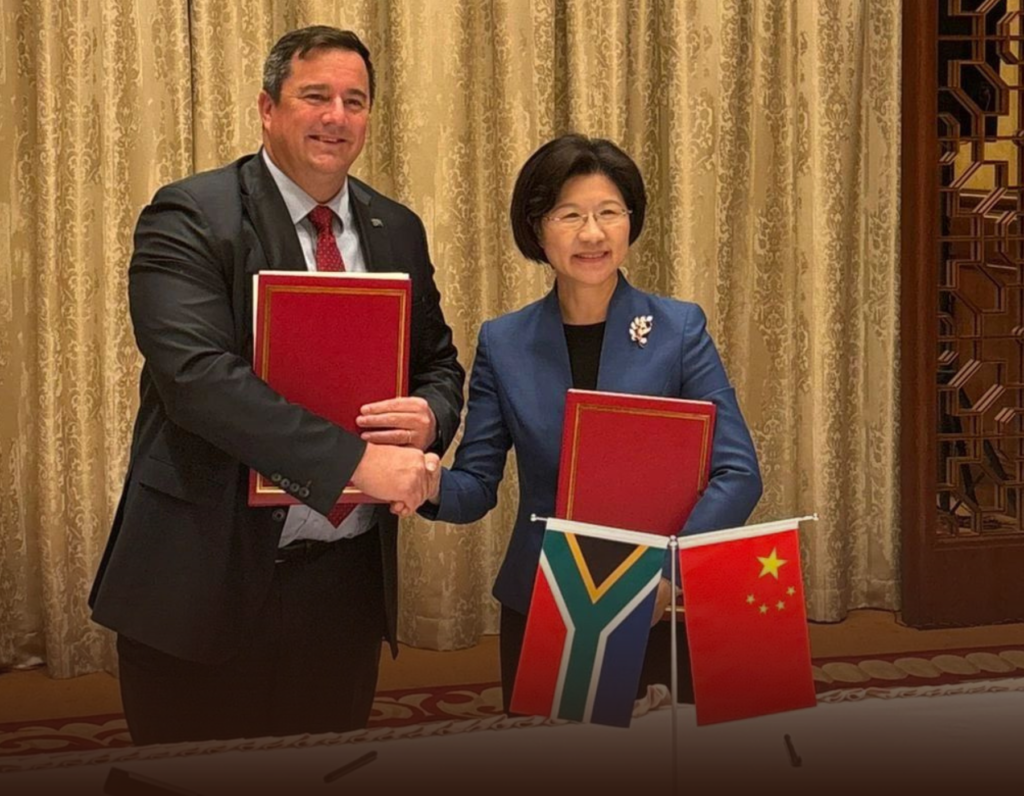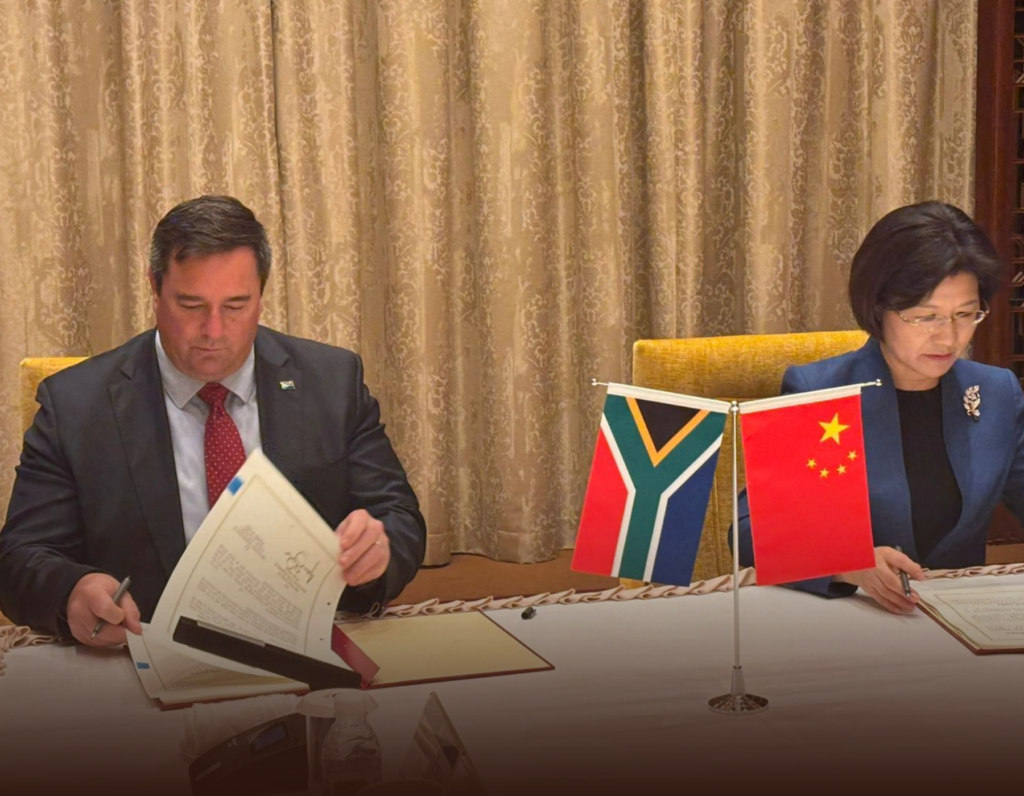South Africa and China have taken a major step to deepen agricultural trade ties after South Africa’s Minister of Agriculture, John Steenhuisen, and China’s customs minister, Sun Meijun, signed a stone-fruit access protocol in Shanghai that will allow South African apricots, peaches, nectarines, plums and prunes to enter the Chinese market for the first time. The single, multi-fruit arrangement is also the first time China has negotiated access for multiple stone-fruit varieties from one country under a single protocol.
The deal is being hailed as a breakthrough for South African growers and exporters seeking to diversify markets amid shifting global trade dynamics. Officials and industry analysts estimate the protocol could unlock hundreds of millions of rand in new export value over the coming years, with an initial conservative projection of roughly R28 million in the 2025/26 season rising as supply chains scale up.
China’s appetite for fruit is already vast: last year Chinese imports of peaches, nectarines and plums numbered in the tens of millions of cartons, a demand pool that far outstrips South Africa’s current seasonal output. That gap, trade experts say, creates both opportunity and pressure: South African producers will need to expand cold-chain capacity, meet stringent phytosanitary standards and adapt logistics to reliably serve distant Chinese markets.
The protocol follows recent milestones in South Africa–China fresh-produce trade, including the country’s earlier launch of avocado shipments to Shanghai this year after a 2023 phytosanitary agreement. Those initial avocado consignments provided a test case in meeting China’s quality and inspection requirements and have helped build the technical foundations that now make multi-fruit access possible.

Beyond direct export gains, the agreement is expected to generate knock-on benefits for jobs and rural economies across South Africa’s fruit-growing regions. Industry bodies note that new market access tends to stimulate investment in packaging, cold storage, certification services and trucking all elements of a value chain that creates local employment and raises farmer incomes. HortGro, representing the country’s deciduous fruit sector, welcomed the protocol as a milestone that will help broaden destination markets for growers.
The timing of the deal also carries geopolitical and commercial significance. Some analysts view the move within a broader pattern of African producers pivoting toward Asia as demand and trading relationships recalibrate in response to global trade tensions elsewhere. For South Africa, deepening agricultural links with China complements longstanding cooperation in infrastructure, mining and industrial projects while offering a counterbalance to tariff and market uncertainty in other regions.
Implementation will be critical. Observers warn that realizing the protocol’s promise depends on coordinated efforts by government, exporters and buyers to upgrade phytosanitary compliance, streamline customs processes and secure investment in refrigerated logistics. There is also scope to expand technical cooperation with Chinese partners on cold-chain management and quarantine procedures – areas already under discussion following the avocado market openings.
For now, the mood in South African orchards is upbeat. As Minister Steenhuisen told reporters, the agreement “marks a major breakthrough for South African fruit producers and exporters at a time when diversification is essential for our agricultural resilience.” With the protocol signed, the next season will show whether South African stone fruit can convert market access into lasting market share in one of the world’s largest fruit markets.




